She Business
Award-Winning BENA Care Thrives with Standard Chartered Kenya’s Futuremakers Program
Naom Monari puts smiles to patients who would otherwise be left to suffer but collaborating with Standard chartered Bank, Kenya, she’s become a lifesaver.
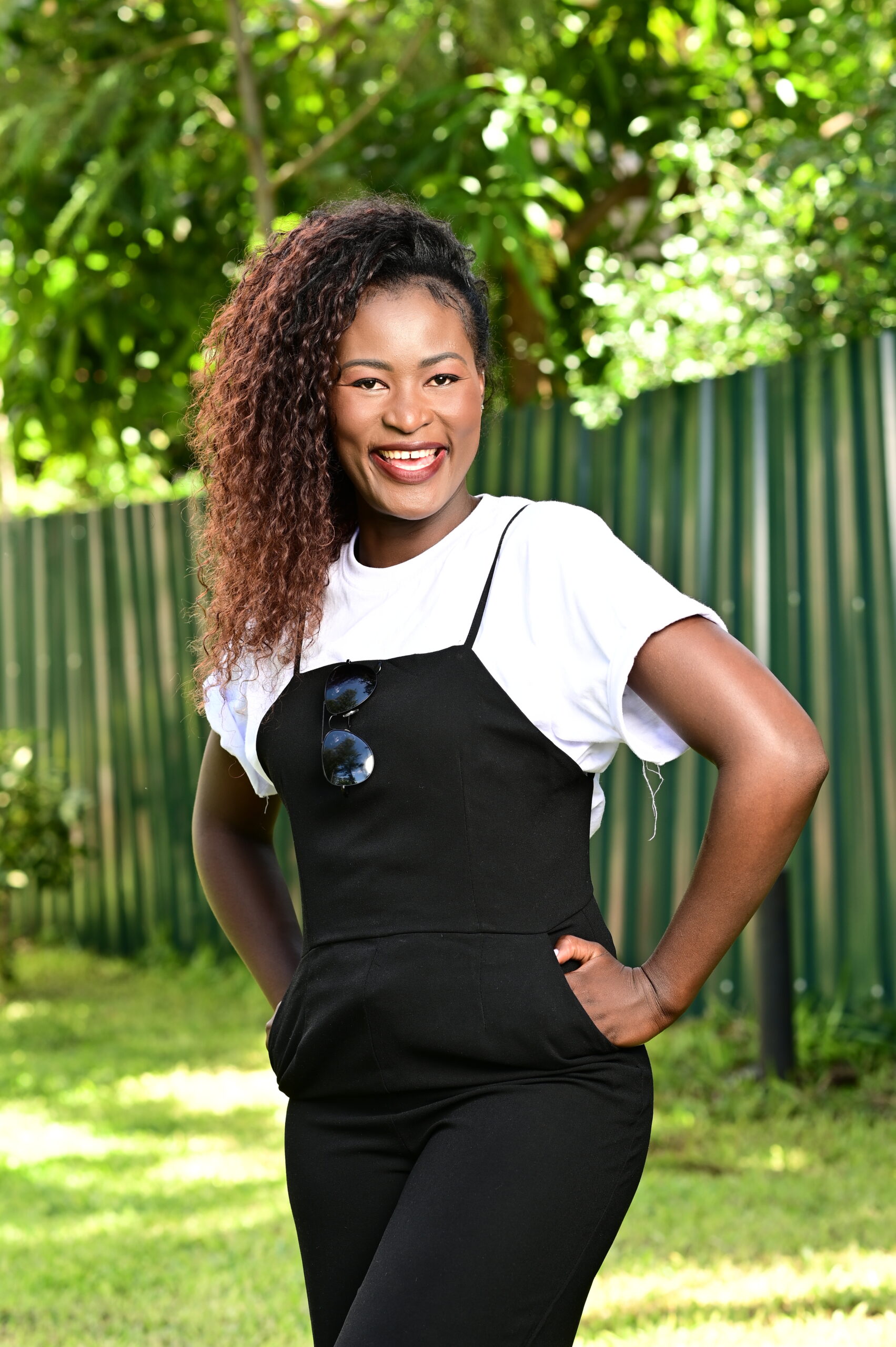
By Charles Wachira
Nairobi- June 4 –Naom Monari is the founder of BENA Care Ltd , an award winning social enterprise located in Kenya that provides clinical and physiotherapy care services to patients inflicted by life threatening illnesses from the comfort of their homes.
And verifiably since implementing lessons learnt at the Futuremakers program , an initiative run by the Best Foreign bank in Kenya the company has witnessed a seismic improvement in service delivery including a substantial increase in its footfall which got a footprint here in 1911 with the first branch opening in Mombasa city.
The programme builds on the success of Standard Chartered Bank’s Seeing is Believing (SiB) initiative that tackled avoidable blindness and visual impairment reaching over 176 million people and raising more than US$ 100 million.
Through the Futuremakers program, the bank’s global ambition is to raise US$ 50 million, empower 500,000 adolescent girls, support 100,000 youth towards employability, and build the entrepreneurship capability of 50,000 micro and small businesses.
It turns out meanwhile this organization which also offers a platform for buyers of homecare equipment to access cheap, used, and well-maintained medical equipment like oxygen concentrators,, is on a tear.
“ Within two years we have seen the patients we have attended to grow from 300 to 6000.We have also improved our efficiencies by setting up a healthcare technology app @ benacare, which is a digital platform that geomaps nurses and physiotherapists drawn from across the country, who then take care of patients from the comfort of their homes. And a positive spin off is that we have been able to attract new sponsors from outside the country including from Kenya,” says Monari who says the brand name of the company was formed from the name of her two year old daughter Beita, now aged eight years including her name Naom .
The five-year-old Kenyan social enterprise that Monari runs has a dedicated network of more than 9000 healthcare workers that provide affordable, preventative , therapeutic and rehabilitative care to people suffering from life limiting illnesses from the comfort of their own homes.
Regina Mukiri,Regional Head, Community Impact and Engagement, Kenya and Middle East, at Standard Chartered Bank says 31,075 young people in the Kenyan market, who include Monari had by end of April 2023 benefited from the programme with the lender spending Ksh 189M for the financial year ending 2023.
According to the website of Standard Chartered Bank , the Future Makers initiative supports young people from low-income communities, especially girls and people with visual impairments, to learn new skills and improve their chances of getting a job or starting their own business.
This is in line with the UN’s SDG Goal 5, which calls for eliminating all forms of discrimination and violence against all women and girls, including those with disabilities. It also stresses the importance of their full and effective participation and equal opportunities in political, economic and public life.
Mukiri says the initiative cements Standard Chartered Banks’ commitment to addressing “prevalent issues that impact our communities” particularly youth unemployment, and also cements the lender’s credentials of being here for good.”
“We believe that social and economic inclusion leads to more prosperous and sustainable communities. We believe everyone should be able to contribute to, and benefit from, sustainable economic growth in their community. We promote greater economic inclusion through Futuremakers by Standard Chartered, our global initiative to tackle inequality. Futuremakers supports young people from low-income households, particularly girls and people with visual impairments, through community programmes focused on education, employability, and entrepreneurship,” says Mukiri.
In what was dubbed as the first phase, the initiative was initially launched in June 2019 and rests on four pillars , namely Education,Employability and Entrepreneurship.
The education pillar sees girls being equipped with the confidence, knowledge and skills they would lead them to become economical leaders in their families and communities.
While the employability column , develops opportunities that support young people to become job-ready.
In the entrepreneurship plank,the bank provides support, mentorship opportunities and access to resources, such as funding and banking products and services, to female entrepreneurs in the technology sector.
In the first phase of the program, the Bank equipped over 4800 students drawn from five local universities with employability and life skills. The universities included Jomo Kenyatta University of Agriculture & Technology, Kenyatta University, USIU-Africa University, Multimedia University, and Zetech University.
During the second phase which began in April 2022, Standard Chartered Bank Kenya injected Kshs 96.9 million, to run for two years targeting 790 young jobseekers with disabilities, including 150 jobseekers with visual impairment.
Kellen Kariuki, the Standard Chartered Kenya’s Board Chair says the African continent has the youngest population globally, with 70% in sub-Saharan Africa falling below the age of 30. And that the burgeoning youth population presents a massive opportunity for economic growth – but only if the new generation is empowered to realize their full potential.
“ It is particularly important for these young individuals to be included in decision-making, accorded the right work opportunities, and to innovate. Sadly, the high levels of inequality in education and the job market have presented an almost perpetual challenge,” she says.
Indeed unemployment remains a big issue.
According to the African Development Bank (AfDB) approximately 10 to 12 million young Africans enter the labour market annually where only 3 million formal jobs are created by African countries. This leaves most youth unemployed or forced to settle for low-paid and low-productive jobs in the informal sector to make ends meet.
In Kenya, the situation is dire as official statistics show a third of Kenyan youth, eligible to work are jobless.
Enter Maureen Awino,another beneficiary of the program.She’s the founder of Modesh Bakers in Kisumu city.She says that she’s now able to run her company effectively.
“I’ve expanded my product line to offer different types of cookies.I also trained 80 women last year.This has enabled me to increase my sales from 150 packets of cookies to 3,000 packets weekly,” says Awino.
Standard Chartered Bank set out to fundraise and donate US$ 50 million for Futuremakers between 2019 and 2023 , funds that would empower the next generation to learn, earn and grow. In response to COVID-19, the lender committed a further US$ 25 million to Futuremakers to support economic recovery for young people impacted by the pandemic.
It achieved the US$ 75 million target set for 2023, a year earlier, with additional donations made during the pandemic. In 2022, the Bank fundraised US$ 14.7 million for Futuremakers including Group donations, bringing the total fundraised from 2019 to 2022 to US$ 78.7 million.
The programme is part of a global initiative to tackle inequality by promoting greater economic inclusion across global markets by empowering young people to unleash their full potential and lift their participation in the economy.
“What I loved about the programme was that we were provided with female entrepreneurs of note who took us through the ropes of how to excel in entrepreneurship and how to navigate the business cycle.We were also provided with US$ 10,000 as seed funding ,” says Monari who began Benacare in 2017, as a student nurse at Gatundu Level Five Hospital, in Central Kenya after witnessing the growing number of patients that stayed in the hospital receiving non-urgent medical care, a phenomenon that inspired her to introduce the home nursing service.
“We are transforming society through our Futuremakers programs that include our GOAL project, Youth Employability programs, and Entrepreneurship programs such as Women in Tech. At Standard Chartered, we are committed to supporting the youth and women by creating opportunities to support them when they embark on entrepreneurship, Joyce Kibe, Head of Corporate Affairs, Brand and Marketing Kenya and East Africa says.
:KeywordsBENA Care Ltd:Futuremakers program:Standard Chartered Bank Kenya:Healthcare technology app:Social enterprise expansion
She Business
How Margaret Nyamumbo Built Kahawa 1893 from the Ground Up
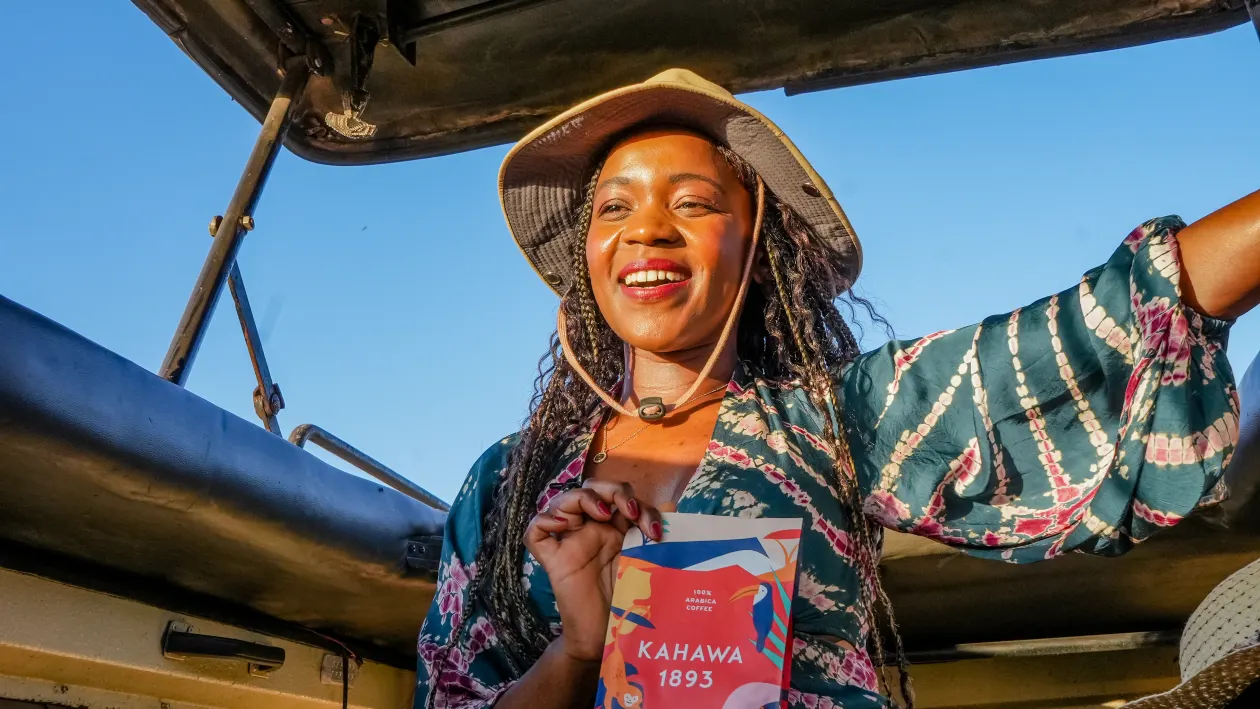
: Discover Margaret Nyamumbo’s journey from Kenya to the U.S. and how she
built Kahawa 1893 to empower women coffee farmers, achieving business
success and social impact
Early Life and Education: Pursuing Global Opportunities
Margaret Nyamumbo’s entrepreneurial journey began in Kenya, where she grew up on a coffee
farm. However, she moved to the U.S., a decision that significantly shaped her path.
In 2000, she travelled to Smith College, a prestigious liberal arts institution in Massachusetts,
to study economics.
Her desire to study abroad stemmed from the limited educational opportunities available for
women in Kenya at the time. As she later explained, her family encouraged her decision, viewing it as a way to give her the best opportunities for success.
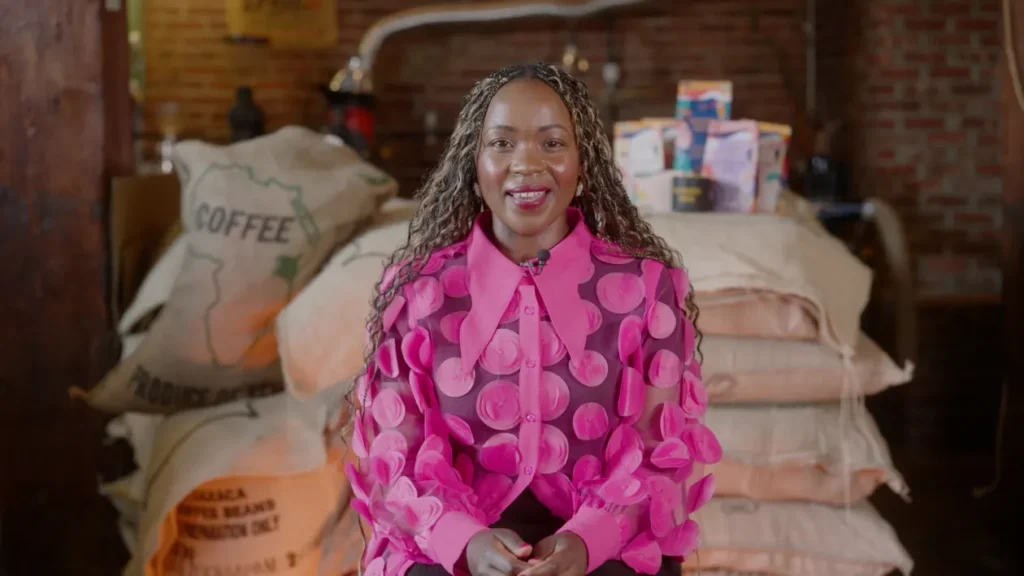
After earning her degree from Smith College, Nyamumbo pursued an MBA at the Wharton
School of the University of Pennsylvania, known for its rigorous business programs.
This solidified her foundation for a future in business, although it was the allure of her roots and a passion for coffee that eventually led her back to entrepreneurship.
From Corporate Work to Entrepreneurship: Embracing Coffee Culture
After completing her studies, Nyamumbo worked in investment banking and consulting, but the world of corporate finance didn’t fully satisfy her ambitions.
It was her return to the coffee industry, deeply connected to her Kenyan heritage, that drove
her entrepreneurial leap. With a vision to support East African coffee farmers, particularly women, Nyamumbo founded Kahawa 1893 in 2018, a coffee brand dedicated to highlighting Kenya’s coffee culture while mpowering local farmers.
The name “Kahawa” is the Swahili word for coffee, while “1893” marks the year when coffee
was first commercially grown in Kenya, grounding her brand in historical significance.
Through Kahawa 1893, Nyamumbo aimed to bring a new approach to the coffee business, one
that not only celebrated East African coffee but also created fair wages for farmers.
Building a Brand with Purpose: Empowering Farmers
Nyamumbo’s vision for Kahawa 1893 went beyond just selling coffee.
She wanted to create a direct impact on the lives of the farmers growing the coffee beans.
The brand’s model incorporated a system where customers could tip the farmers directly via a
QR code found on the coffee bags.
This innovation set the company apart from competitors and positioned it as a socially
responsible business that directly benefited those involved in the production process.
In 2021, Kahawa 1893 hit a major milestone, getting its coffee stocked in Trader Joe’s—the
first Black- and woman-owned coffee brand to be featured there.
This breakthrough moment was significant for Nyamumbo, marking the recognition of her hard work and her commitment to uplifting local farmers.
Overcoming Challenges: What It Takes to Succeed
Despite the challenges of entering a highly competitive market, Nyamumbo’s determination
never wavered. In a 2022 interview with Forbes, she shared her thoughts on what it takes to be a successful entrepreneur.
“You have to be able to take the punches and keep moving,” she said. Her advice reflects the
reality of entrepreneurship: persistence, resilience, and a willingness to learn from failure are
crucial for success.
Nyamumbo also emphasised the importance of passion. “You’ve got to love what you do, or you won’t have the energy to push through the tough times,” she said.
These values have guided her journey, driving Kahawa 1893 to not only succeed but also to
change the way the coffee industry operates, particularly about fair trade and community
empowerment.
The Future of Kahawa 1893: Expanding Horizons
With her success on platforms like Shark Tank and continued global distribution, Nyamumbo’s
Kahawa 1893 is poised for growth.

Her brand continues to expand its reach, and the emphasis on ethical sourcing, community
impact, and high-quality coffee will likely remain at the heart of her business model as she looks to further innovate in the global coffee market.
Through Kahawa 1893, Nyamumbo has shown that business success is not just about
profits—it’s about purpose, people, and passion.
She Business
Chebet Ng’ok: Founder of Harriet Botanicals, Empowering Wellness
Harriet Botanicals embodies Chebet Ng’ok’s mission to make indigenous wellness accessible to everyone. Her journey shows how personal struggles can spark entrepreneurial success. “I never imagined my pain would bring me here,” she reflects. “But now, I’m proud to help others live healthier, pain-free lives.” Chebet’s story is one of resilience, innovation, and staying connected to her heritage—valuable lessons for any aspiring entrepreneur.
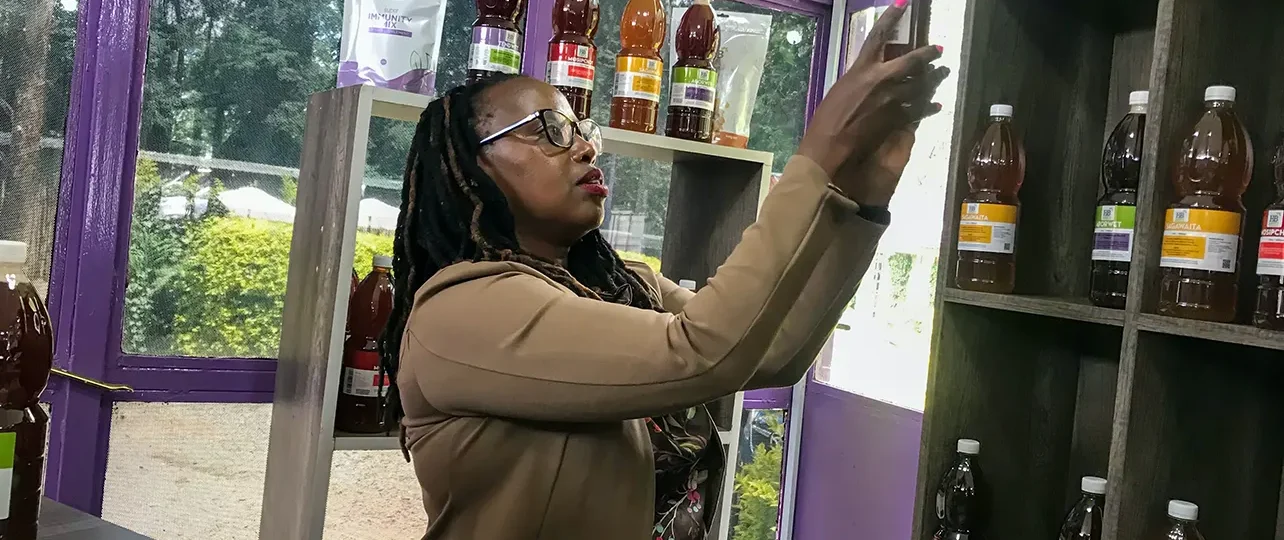
Discover how Chebet Ng’ok’s Harriet Botanicals uses indigenous herbs to transform reproductive health, helping women and men live pain-free, healthy lives.
Chebet Ng’ok, the Founder and CEO of Harriet Botanicals, took a deeply personal challenge and turned it into a thriving business, bringing indigenous Kenyan remedies to the forefront of the wellness industry.
What started as a search for relief from severe menstrual pain led Chebet to discover the healing power of local herbs.
Today, her company is empowering women and men alike through natural products while promoting better reproductive health.
From Financial Powerhouse to Entrepreneur
Chebet’s journey into entrepreneurship was far from typical.
A highly successful financial manager and consultant, she spent over 15 years living in London, where she obtained an LLB in Law with a concentration in Commercial Law from the London School of Economics and an LLM in International Banking and Finance.
Her illustrious career saw her work with some of the world’s largest financial institutions, including JPMorgan Chase, the UK Financial Services Authority, and Goldman Sachs. She even held positions as an independent consultant and an East Africa Partner at Dwyka Projects and Equinox Global Consultants.
However, behind her professional success, Chebet was grappling with debilitating menstrual pain that impacted her life and career.
“When I finished my education and started working, I had a serious challenge with my menstruation—a lot of pain, agony, painkillers, and frequent visits to doctors and gynecologists,” she explained in a 2021 interview. Desperate for relief, she tried everything from juice fasts and yoga to various painkillers, but nothing seemed to work.
Discovering Indigenous Remedies
It wasn’t until Chebet returned to Kenya that she discovered the transformative power of indigenous herbs.
Her journey into alternative medicine began with a recommendation from a family member.
A herbalist uncle from Webuye gave her a traditional remedy that, for the first time, alleviated some of her pain. Later, at her father’s funeral, a woman introduced her to Kipsigis herbs, which provided the first completely painless menstrual cycle Chebet had experienced in years.
This revelation inspired her to research further into indigenous remedies from the Keiyo, Marakwet, and Kipsigis communities.
“When I experienced a painless period for the first time in my life, I knew I had stumbled upon something truly powerful,” Chebet recalls. She began sharing the herbs with friends, one of whom was about to undergo a hysterectomy due to severe menstrual pain. The success stories spread quickly, with Chebet’s social circles buzzing about the benefits of these natural remedies.
Filling a Void in Kenya’s Wellness Market
Harriet Botanicals was officially launched in 2017 to formalize the distribution of these indigenous remedies, focusing initially on women’s reproductive health.
“We realized there was a huge gap in the market for locally sourced, natural solutions to common health issues like menstrual pain, infertility, and digestion challenges,” says Chebet.
As word of mouth spread and demand grew, Harriet Botanicals expanded its product line to cater to both men and women, offering remedies for issues like low libido and immune support.
Chebet made it her mission to ensure that these products were accessible to all Kenyans, opening outlets in major cities and towns across the country.
Overcoming Challenges and Building a Business
Starting Harriet Botanicals was not without its challenges. Despite her background in finance, Chebet faced an entirely new set of hurdles in the health and wellness sector.
“Convincing people to trust indigenous remedies was tough. Many believed that imported products were more effective,” she explained.
Funding was another major obstacle. Chebet initially relied on personal savings and small contributions from family and friends. She didn’t have access to large-scale investment, but through determination and a commitment to quality, Harriet Botanicals slowly gained a loyal customer base.
“I believed in the power of the product, and I knew that if we kept reinvesting back into the business, we could grow sustainably,” she said.
Lessons for Aspiring Entrepreneurs
Reflecting on her entrepreneurial journey, Chebet shares some valuable lessons for others looking to start their own businesses.
“First, you have to believe in your product. If you’re not convinced, no one else will be,” she advises. She also stresses the importance of resilience in the face of adversity.
“There were times I doubted whether this business could work, but I never gave up. You have to be prepared for setbacks and keep pushing forward.”
Chebet also emphasizes the need for market education.
“Our biggest challenge was getting people to trust natural, locally made remedies. But once we focused on educating consumers about the benefits of our products, we began to see a shift.”
Lastly, she advises entrepreneurs to start small and grow organically.
“You don’t need a lot of capital to start. What’s more important is that you have a clear vision and a product that people need.”
Voices of Beneficiaries
The impact of Harriet Botanicals has been far-reaching, with many customers sharing their stories of relief and improved well-being. Ann Wambui, a loyal customer, speaks about how the products have changed her life
: “I had severe menstrual cramps for years. Since using Harriet Botanicals’ products, I’ve experienced pain-free cycles and can finally go about my day without interruption.”
James Njoroge, who struggled with digestive issues, shares a similar experience:
“I started using their Moringa tea for digestion problems, and it’s been a game-changer. I feel healthier and more energetic.”
A Future Rooted in Wellness
Today, Harriet Botanicals stands as a testament to Chebet Ng’ok’s vision of making indigenous wellness solutions accessible to all.
As the company continues to expand its product range and reach, Chebet remains committed to her mission of promoting better health through the power of nature.
Her story is a powerful reminder of the potential for personal challenges to inspire entrepreneurial success. “I never thought my pain would lead me to this,” she says. “But now, I’m proud to be helping other people live healthier, pain-free lives.”
Chebet’s journey is one of resilience, innovation, and staying true to one’s roots—lessons that any entrepreneur can take to heart.
Keywords: Harriet Botanicals: Chebet Ng’ok: Indigenous remedies: Reproductive health: Natural wellness
She Business
Tehmeena Manji: Elevating Kenya’s Tea Industry with Passion
Tehmeena Manji’s journey with Muthaiga Tea Company is a powerful testament to how passion, education, and perseverance can make a meaningful impact on Kenya’s tea industry. Her dedication to quality and sustainability establishes a benchmark for others, inspiring the next wave of entrepreneurs in the nation. Through her innovative approaches, Tehmeena is not only influencing the future of tea in Kenya but also ensuring that the legacy of this essential industry continues to flourish.
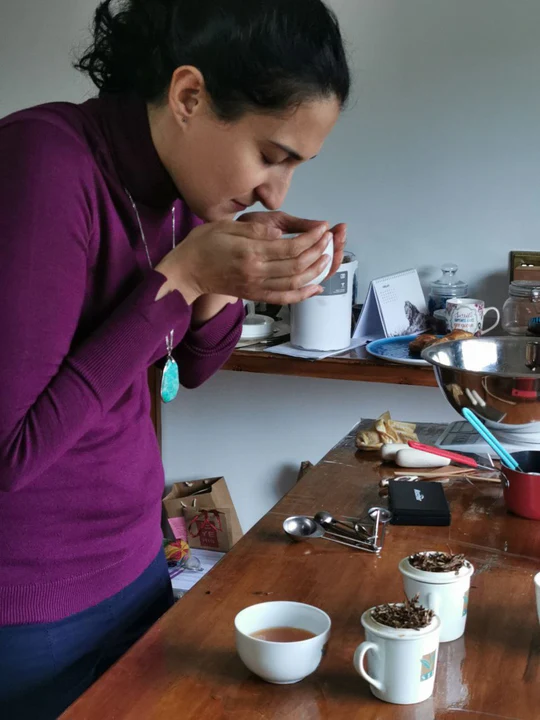
Tehmeena Manji’s story is one of passion, determination, and a commitment to quality, perfectly illustrating the vibrant tapestry of Kenya’s tea industry.
As the founder of Muthaiga Tea Company, she has carved out a niche in the competitive tea market by combining her expertise with innovative practices.
Born in 1989 in Nairobi, Tehmeena’s fascination with tea began at a young age, evolving from a curious child to a renowned tea sommelier and entrepreneur.
Educational Foundation
Tehmeena’s academic journey took root at St. Mary’s School in Nairobi, where she developed a keen interest in culinary arts and agriculture.
Her pursuit of a degree in Food Science and Nutrition at the University of Nairobi, which she completed in 2011, provided her with a solid foundation in understanding the complexities of food production and quality control. This background would become invaluable as she embarked on her entrepreneurial path.
The Birth of Muthaiga Tea Company
Tehmeena officially launched Muthaiga Tea Company in 2017, driven by a mission to provide high-quality, ethically sourced tea for both local and international markets.
Recognizing Kenya’s status as one of the largest tea producers globally, she saw untapped potential in premium tea products.
Starting with an initial investment of KSh 1 million (approximately $10,000), Tehmeena sourced high-quality tea leaves from smallholder farmers in Kericho, an area known for its rich soil and favorable climate for tea cultivation. She prioritized sustainable farming practices, ensuring her suppliers adhered to ethical and environmentally friendly methods.
A Snapshot of Muthaiga Tea Company
Since its inception, Muthaiga Tea Company has witnessed remarkable growth.
By 2023, the company reported an annual revenue of approximately KSh 50 million (around $450,000) and employed around 25 full-time staff while collaborating with over 100 smallholder farmers.
Headquartered in Nairobi, with sourcing operations in Kericho, Muthaiga Tea Company offers a diverse portfolio of over ten different brands, including the signature “Muthaiga Classic” blend, flavored teas, and herbal infusions.
Building a Unique Brand
Tehmeena’s passion for tea led her to pursue further education in tea tasting and blending, culminating in a professional course as a tea sommelier in Sri Lanka in 2018.
This knowledge proved crucial as she crafted unique blends that set Muthaiga Tea Company apart.
In 2019, the company launched its first line of premium teas, including “Muthaiga Classic,” which quickly gained popularity among tea connoisseurs, praised for its rich flavor profile and high-quality leaves.
Innovative packaging designs that emphasized the premium nature of her products further enhanced the brand’s appeal. Muthaiga Tea gained traction in the local market, with sales increasing by 150% in its first year, leading to the expansion of its product line to include flavored teas and herbal infusions by 2020.
Recognition and Challenges
Tehmeena’s dedication to quality and sustainability resonated with consumers, leading to her products appearing in upscale hotels, restaurants, and specialty stores across Kenya.
In 2021, Muthaiga Tea Company was recognized as the “Best New Tea Brand” at the Kenya National Tea Awards.
This accolade validated her efforts and facilitated international distribution, allowing her to export products to Europe and North America.
However, challenges emerged during the COVID-19 pandemic, as global supply chain disruptions impacted her ability to source tea leaves.
Tehmeena demonstrated resilience by pivoting to online sales and developing a direct-to-consumer platform, allowing customers to purchase tea directly from the company.
This strategic shift helped sustain the business during the pandemic, leading to a doubling of online sales by 2022, with a significant percentage of revenue coming from international markets.
Attributes of a Successful Entrepreneur
Reflecting on the essential attributes for success in business, Tehmeena emphasizes resilience, passion, and adaptability.
“You need to have resilience. It’s the ability to bounce back from challenges that sets successful entrepreneurs apart,” she notes.
She also admires the late Prof. Wangari Maathai, the renowned environmentalist, for her commitment to sustainable development, stating, “Her legacy encourages us to consider our responsibility to the planet.”
Future Aspirations
As of 2023, Tehmeena continues to lead Muthaiga Tea Company with a vision to expand into the global market while promoting sustainable practices within the tea industry.
She advocates for fair wages for farmers and aims to launch workshops educating consumers about tea appreciation and the art of tasting.
Kenya’s Tea Legacy and Economic Impact
Muthaiga Tea Company’s success reflects the broader significance of tea in Kenya, where the country ranks third globally in tea production after China and India. Kenyan tea is highly rated for its quality, sustainability, and diverse varieties.
With exports generating approximately KSh 140 billion (around $1.2 billion) in 2022, tea is a vital contributor to Kenya’s economy, providing employment to over 600,000 smallholder farmers and funding community development projects in tea-growing regions.
In summary, Tehmeena Manji’s journey with Muthaiga Tea Company exemplifies how passion, education, and perseverance can lead to significant contributions to Kenya’s tea industry. Her commitment to quality and sustainability sets a standard for others, inspiring the next generation of entrepreneurs in the country. Through her innovative practices, Tehmeena is shaping the future of tea in Kenya, ensuring that the legacy of this vital industry continues to thrive.
Keywords:Tehmeena Manji: Muthaiga Tea Company: Kenyan tea industry: Sustainable tea practices: Tea market exports
-

 Business & Money8 months ago
Business & Money8 months agoEquity Group Announces Kshs 15.1 Billion Dividend Amid Strong Performance
-

 Politics3 months ago
Politics3 months agoFred Okengo Matiang’i vs. President William Ruto: A 2027 Election Showdown
-

 Politics2 months ago
Politics2 months agoIchung’wah Faces Mt. Kenya Backlash Over Gachagua Impeachment Support
-

 Politics4 months ago
Politics4 months agoPresident Ruto’s Bold Cabinet Dismissal Sparks Hope for Change
-

 Politics5 months ago
Politics5 months agoKenya Grapples with Investor Confidence Crisis Amid Tax Protest Fallout
-

 Politics5 months ago
Politics5 months agoPresident Ruto’s Lavish Spending Amid Kenya’s Economic Struggles Sparks Outrage
-

 Politics4 months ago
Politics4 months agoJohn Mbadi Takes Over Kenya’s Treasury: Challenges Ahead
-

 Business & Money1 week ago
Business & Money1 week agoMeet Kariuki Ngari: Standard Chartered Bank’s new CEO of Africa. What’s Next?















